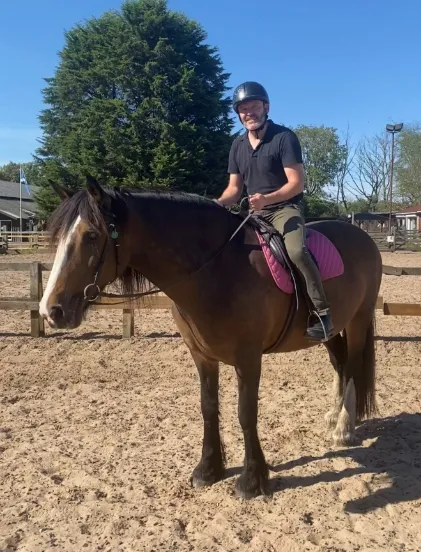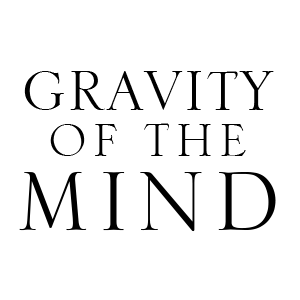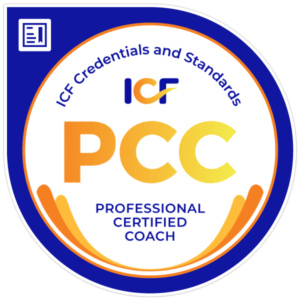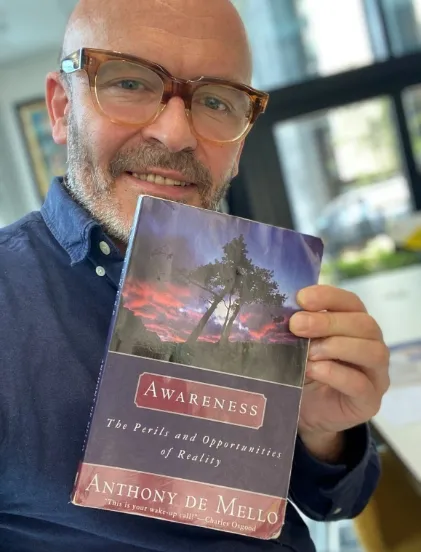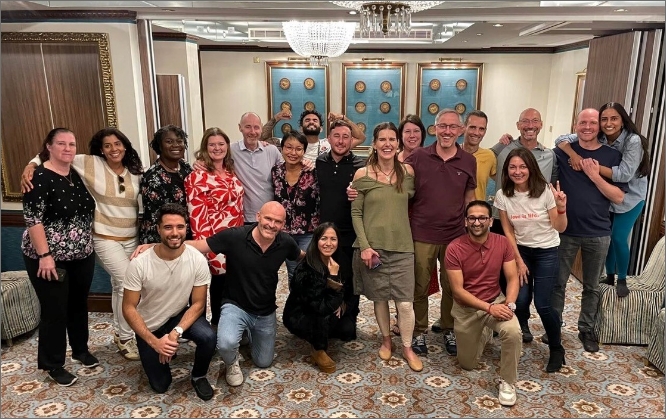Note: this blog is one section of my eBook, ‘How to be a brilliant coaching client’, available upon request.
Karen Davis and Alex Mill, authors of the excellent book How To Get The Most Out of Coaching identify several traits and habits that make it more likely you will use coaching as a catalyst for achieving your goals and making the progress you desire. Below is my take on how you can activate and tap into these traits and behaviours in your quest to be your most coachable self.
Question: How would you rate yourself out of 10 on the follow traits, and which could you place some focus on to leverage your coachability?
Tip: If you find yourself rating yourself lowly out of 10, that’s fine, you are being honest, and your coach can help you work on this area if you think this would helpful.
ACTION ORIENTATED – those who gain the most from coaching have an action orientated mindset; they are willing to try something different immediately, to tackle challenges quickly and directly.
OPENNESS TO A FRESH PERSPECTIVE – coaching in its purest form is non-directive and you the client are always in the driving seat. What a great coach will do is offer observations and insights based on what you share and how you are showing up. This reflective process may also include suggestions and laying out of possibilities (whilst not constituting advice). Be aware of any tendency to put your guard up, how quickly you reject new ideas and how open you are to doing something differently than how you’ve done it until now. Indeed, our ego generally does not like change and resistance is the ultimate blocker of change.
OPENNESS TO EXPERIMENTATION AND TESTING – a key role of a coach is to bring a degree of challenge that will shake up your thinking and move you from your default path (your life trajectory without coaching) to towards the ‘created path’ you desire, where you live and act more consciously. For those who are quite fixed in their thinking and do no enjoy ambiguity, coaching can act as a wonderfully supportive container for trying something new, experimenting in a way where judgement is suspended, and the coach is in your corner to offer a space for reflection. Often it is only habitually fearful thinking that holds us back. I often refer to the qualities of fearlessness, curiosity and openness of small children to demonstrate how we accumulate layer upon layer of conditioned thinking and behaving over time – coaching helps peel back these layers. What have you got to lose? (The answer to that question, if it is not ‘nothing’, can help expose your fears and what is driving you.)
SELF-AWARENESS – all powerful coaching supports us to become more self-aware. But what does that mean in practice? I often use the metaphor of sitting at the top of a mountain with my clients as we look down on their lives. From this higher vantage point, we create distance from our habitual patterns of behaving and thinking. From a more neutral perspective, we remove ego from the equation, which means we can be honest with ourselves.
This process of becoming more consciously aware of how you are in the world also creates space for insight into how your behaviours and ways of being impact on the people around you. At the same time, it becomes easier to see the world from other people’s perspectives.
In this way, through committing to better knowing thyself is the route to better understanding other people. Time and again I see how my clients are transformed through the process of simply observing themselves. As a recent client exclaimed ‘the act of observing it changes it!’ Yes, particularly when we see ourselves through a clearer lens. Indeed, it is our unconscious attachment to our habitual ways of seeing the world, which have become so engrained they are invisible to us, that distort our view of both ourselves and reality.
EXPRESSING YOURSELF there is huge diversity in the style, methodology and approach of professional coaches. Some coaches combine mentoring and teaching with their coaching practice. The personality and style of your coach will influence how you show up in your sessions and it is important you are able to fully be yourself. Professional coaching in its purest form is completely non-directive and you the client are always in the driving seat. Indeed, it is against the core competencies of the International Coaching Federation (ICF) for a coach to give advice or offer opinions without the express permission of the client.
If you find yourself disagreeing with what your coach is offering you or you believe that your boundaries are being crossed in some way, have the courage to bring this up with your coach – it is your absolute right. A good coach welcomes feedback and this can only serve the coaching relationship going forward as the coach seeks to better meet your needs.
CURIOSITY – being coachable is being willing to explore new possibilities, to be open to learning. Often clients come to coaching feeling stuck or wrapped up in a bunch of limiting beliefs and thoughts. I help my clients tap into their innate curiosity which may have been dormant for some time.
Cast your mind back to when you were a young child, full of wonder, free to explore, learning as a natural way of being (whether you knew it or not) and curiosity your very nature. Yes, we are built for learning and growth and the coaching process is an invitation to step into a world of possibility.
OPTIMISM – if we enter the coaching journey anticipating the process to be smooth and linear, we can end of struggling when we hit the odd bump in the road. Similarly, when the inherent challenge of the coaching process reveals something inside of us that causes discomfort it can be easy to lose heart, or to discount the considerable progress that has already been made (what I can ‘back to square one’ mentality).
Maintaining hope and optimism is key to sustaining momentum. As often quoted, one of the secrets of success in life is showing up. Thus, staying in the game, taking action when you don’t feel like it, and deeply knowing that any feelings of discomfort and discouragement are not permanent, can help accelerate your progress towards your goals.
SENSE OF HUMOUR– I sometimes joke that the one thing I am deadly serious about is not taking myself too seriously. Lightness and humour we all know are powerful antidotes to the heaviness and seriousness that life can sometimes feel. Coaching partnerships are like any relationship – as trust, rapport and mutual understanding develop, candidness and humour are a natural part of the dynamic.
Think of a friend of family member that you always find yourself enjoying the company of – What do they bring out in you? How can you tap into that energy as part of the coaching process?
To note, this is not about being jokey, which can be a behavioural device we use to avoid addressing difficult topics or situations. Seeing the humour in life, and not taking yourself too seriously relieve the pressure we often put ourselves under, particularly when we are striving to create change or make meaningful progress.
HONESTY AND INTEGRITY – How you show up in the coaching partnership is a reflection of your character and values. On the basis that you can build a strong foundation and trust, there is an opportunity to be totally honest with yourself and your coach. If you make mistakes in life, or you do not take action on what you had been committed to, use the coaching partnership to develop the virtues of honesty and integrity. If you espouse certain values but do not live fully alignment with them, being honest about this with your coach is a huge area for learning and growth.
